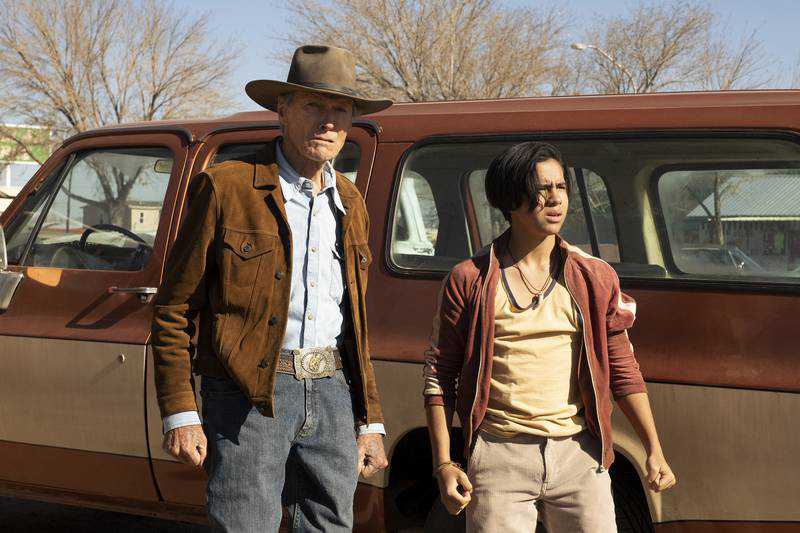'Cry Macho' review: Clint Eastwood fails to deliver both as star and director
25 November, 2021

Clint Eastwood’s Cry Macho marks the 39th film of his incredibly impressive directorial career.
Since making his debut with 1971’s Play Misty For Me, Eastwood has never gone longer than two and a half years without overseeing a film. In the process, he has won four Academy Awards, picking up the Best Picture and Best Director gongs for both Unforgiven and Million Dollar Baby.
But even though it marks his fourth film in three years, Cry Macho is a clear sign that Eastwood, 91, is finally starting to slow down.
Set in 1979, the film revolves around Eastwood’s Texan rodeo star Mike Milo, who has been forced to retire by his boss Howard Polk (Dwight Yoakam) owing to a severe back injury. One year later, Polk asks Mike to travel to Mexico City on his own and bring back his teenage son Rafo (Eduardo Minett).
Once in Mexico, Mike learns that Rafo, 13, has turned to a life of crime. In particular, he has been entering his rooster, Macho, into cockfights. Mike convinces Rafo to return to the US, but when Rafo’s mother, Leta (Fernanda Urrejola), finds out, she soon sends numerous henchmen after the pair to stop them from making it over the border.
Cry Macho unfolds at a leisurely pace that feels particularly unique when you consider how relentless modern movies have become. That proves to be both a positive and a negative for the neo-Western drama, as its gentleness creates some genuinely moving moments. At the same time, though, there are extended periods where it’s just dull.
Over the course of its opening 30 minutes, Eastwood and screenwriters Nick Schenk and N Richard Nash allow scenes to meander and unfold in a shockingly undramatic fashion.
It also doesn’t help that Eastwood’s previously mysterious whisper has now descended into a barely legible mumble. As a result, any power or wisdom in the dialogue fails to register. For the most part, you can’t help but think that Eastwood has miscast himself in the film, as he no longer has the weight or the cunning to bring a character like Mike to life.
Then, slowly, Cry Macho begins to find some kind of rhythm. Eastwood and Minett develop a solid rapport. So much so that it actually becomes a rather enjoyable hang-out movie during its second act. Especially as this section also introduces coffee shop owner Marta (Natalia Traven).
The burgeoning romance between her and Mike makes the film more heart-warming and uplifting. This is where it helps that Mike doesn’t speak Spanish, as Eastwood and Traven create their connection through looks and slight touches that prove to be much more resonant.
At the same time, Eastwood and his cinematographer Ben Davis do a superlative job of creating gorgeous landscape shots of the Mexican desert and its sunsets. Alongside Mark Mancina’s reflective score, there are several unhurried sequences where Cry Macho feels like it’s about to touch upon something profound.
Unfortunately, despite repeatedly flirting with themes of heroism, fatherhood and masculinity, it never actually comes close to exploring them in any kind of meaningful way. It’s too simplistic and obvious. Then, rather than building to anything dramatic or surprising, it just peters out in an underwhelming and predictable manner.
Sure, Cry Macho deserves credit for putting Eastwood in the saddle again and showing that he still looks great in a cowboy hat. But, ultimately, that makes it all the more frustrating because it doesn’t actually do anything worthwhile with him or the character.
Source: www.thenationalnews.com
